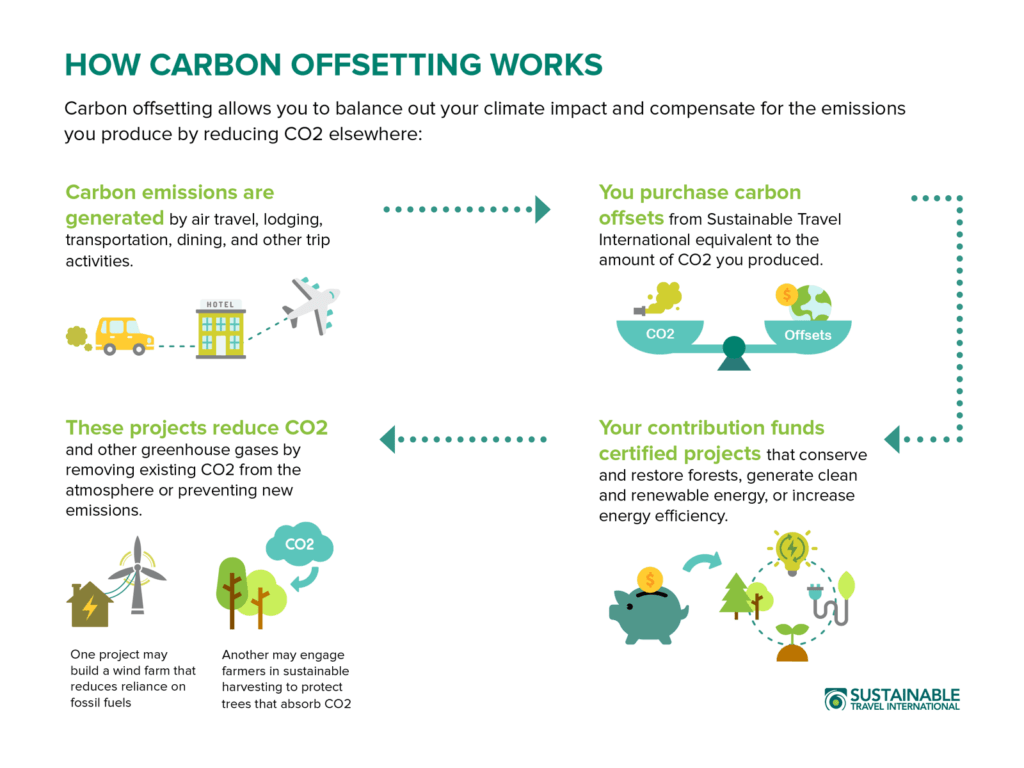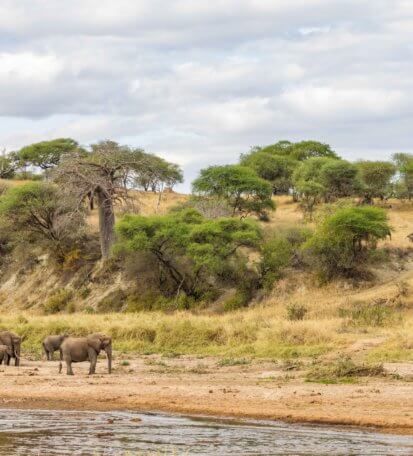Sustainability
How to Plan an Effective Sustainable Trip

In a world where the environmental impact of travel is increasingly under scrutiny, planning a sustainable trip has become more than just a trend—it’s a responsibility. Sustainable travel is about making conscious choices that minimize the negative effects of tourism on the environment, local communities, and cultures.
In this article, we’ll explore how to plan a trip that not only satisfies your travel experience but also contributes to the well-being of our planet.
1. Choose Eco-Friendly Accommodations
Selecting eco-friendly accommodations is a vital step in ensuring a sustainable trip. Look for hotels, resorts, or guesthouses that have committed to green practices.
Explore a list of eco-friendly hotels and serviced apartments on Clooper. Most of our accommodations are committed to green practices, including energy-efficient lighting, water conservation measures, and waste reduction programs.
Also, the rise of certifications such as B Corp Certification, Carbon Trust Standard, and Good Business Charter in the sustainability industry indicates a commitment to sustainable tourism.
By choosing brands with these certifications, you not only reduce your environmental impact but also contribute to a growing movement within the travel sector to prioritize eco-conscious practices.
Some eco-friendly hotels collaborate with local communities for employment, source their products locally, and contribute to social and environmental projects. This way, your choice of lodging becomes a positive force for both the environment and the people in the destination.

2. Opt for Green Transportation
Transportation is a significant contributor to carbon emissions, but there are ways to minimize your impact and ensure a sustainable trip. Consider taking direct flights, as they generally have a lower carbon footprint than connecting flights.
Once at your destination, choose public transportation, bicycles, or electric vehicles instead of renting a gas-guzzling car. If possible, explore options like trains or buses, which are often more energy-efficient than individual vehicles.
Moreover, as part of your transportation strategy, research and support airlines and companies that are actively working to reduce their carbon footprint. Many airlines now have sustainability initiatives, such as investing in more fuel-efficient aircraft and using sustainable aviation fuels. By consciously choosing transportation options with lower environmental impacts, you contribute to the overall reduction of the travel industry’s carbon footprint.
3. Pack Light and Responsibly
Packing plays a crucial role in sustainable travel, influencing both your convenience and the environment. Overpacking not only burdens you with excess luggage but also contributes to increased fuel consumption during transportation.
To minimize your impact, pack only what you need and focus on versatile, multi-purpose items. Choose clothing made from sustainable materials, and opt for a capsule wardrobe that can be mixed and matched, allowing you to pack lighter while still being prepared for various activities.
In addition to clothing choices, consider bringing reusable items to reduce single-use plastic waste. A reusable water bottle, utensils, and a shopping bag can make a significant difference.
Some travel destinations might not have the same waste management infrastructure as your home country, so being mindful of your waste and reducing your reliance on single-use items helps protect the local environment.
4. Support Local Businesses
Immersing yourself in the local culture is one of the most rewarding aspects of travel, and supporting local businesses is a key way to do this sustainably. Opt for locally-owned accommodations, eateries, and shops to ensure your tourism dollars directly benefit the community you’re visiting.
By choosing local businesses, you contribute to the preservation of unique traditions, arts, and crafts.
When it comes to souvenirs, select items that are locally made and culturally significant. Avoid purchasing products that contribute to environmental degradation or the exploitation of local resources. Engaging with local artisans and markets not only provides you with authentic experiences but also helps sustain the local economy, ensuring that the benefits of tourism are shared among the community.
5. Respect Wildlife and Nature
When planning activities, opt for those that have minimal impact on the environment and wildlife. Avoid activities that involve the exploitation of animals or contribute to habitat destruction.
Instead, consider eco-friendly excursions, such as hiking, bird watching, or nature tours led by certified guides who prioritize conservation and education.
Respect for wildlife goes beyond choosing the right activities. It includes observing animals from a safe distance, refraining from feeding them, and never engaging in activities that disrupt their natural behaviours.
By being a responsible and considerate traveller, you contribute to the preservation of natural habitats and the well-being of the local flora and fauna.
6. Conserve Resources During Your Stay
Being mindful of resource consumption during your stay is a fundamental aspect of sustainable travel. Turn off lights and electronics when not in use, and use water sparingly.
Many hotels now offer towel and linen reuse programs, so take advantage of these initiatives to reduce water and energy usage. In addition to these practices, inquire about the hotel’s overall sustainability efforts, such as waste reduction and recycling programs.
Moreover, familiarize yourself with the local ecosystem and adhere to any guidelines provided. For example, some destinations may have specific water conservation measures due to local conditions. By respecting these guidelines, you contribute to the overall sustainability of the destination and help preserve its natural beauty for future generations.
7. Offset Your Carbon Footprint

Even with the best intentions, travel inevitably leaves a carbon footprint. However, there are steps you can take to mitigate this impact. Consider purchasing carbon offsets to counteract the emissions from your trip.
Many organizations offer carbon offset programs that fund renewable energy projects or reforestation initiatives, helping to balance out the environmental impact of your travels.
Participating in carbon offset programs is a proactive way to take responsibility for the emissions associated with your journey. By investing in projects that promote sustainability, you contribute to the development of cleaner and greener solutions globally.
Some airlines and travel agencies even provide options to purchase carbon offsets at the time of booking, making it easier for conscientious travellers to incorporate this practice into their overall trip planning.
FAQs
What are the 3Ps of sustainable tourism?
The 3Ps of sustainable tourism are People, Planet, and Profit. This triple-bottom-line approach emphasizes the importance of balancing environmental conservation, community well-being, and economic viability.
Why do people want to travel sustainably?
Travellers choose sustainable options to minimize their environmental footprint, support local communities, and engage in responsible tourism practices. The desire to have a positive impact on the destinations they visit, both environmentally and socially.
What is the least polluting way to travel?
Generally, the least polluting way to travel is by using public transportation, such as buses, trains, or trams. These modes of transportation often have a lower carbon footprint per passenger compared to individual vehicles and air travel.
Which city is eco-friendly in the UK?
Bristol is often recognized as an eco-friendly city in the UK. It has implemented various sustainable initiatives, including extensive public transportation, cycling infrastructure, and community-based environmental projects.
Conclusion
By incorporating these sustainable trip practices into your trip planning, you embark on a journey that transcends mere tourism. Your choices become a powerful force for positive change, supporting local communities, preserving natural environments, and promoting eco-friendly practices within the travel industry.
Lastly, sustainable travel is a collective effort, and each decision you make plays a part in creating a more responsible and mindful approach to exploring the world. As you plan your sustainable trip, remember that the impact extends beyond your individual experience. By sharing your commitment to responsible travel with others, you contribute to a growing movement of conscious explorers striving to make a difference.




